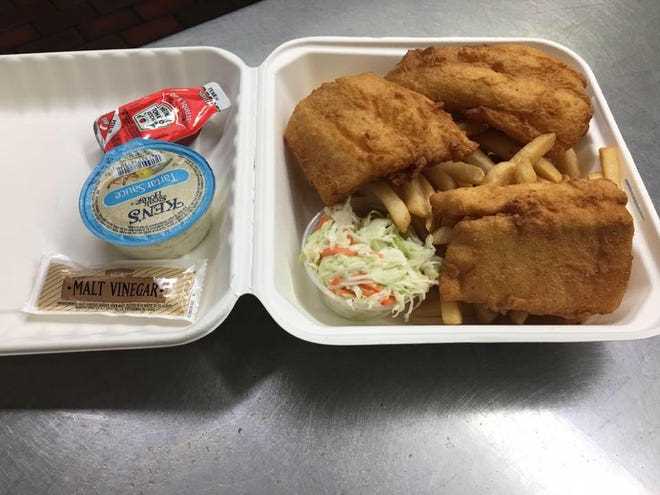
Have you ever wondered what happens to the paper used for fish and chip packaging after you’ve enjoyed your meal? Well, you might be surprised to learn that it can actually be recycled! Recycling fish and chip paper not only helps to reduce waste, but it also plays a crucial role in protecting our environment.
Why is it important to recycle fish and chip paper?
Fish and chip paper is typically made from a type of paperboard called virgin kraft paper, which is specially coated to make it grease-resistant. This coating can make it difficult to recycle the paper, but with the right processes in place, it can be done. By recycling fish and chip paper, we can help to conserve valuable resources, such as trees and water, that are used in the production of virgin paper. Additionally, recycling reduces the energy and emissions associated with producing new paper, which in turn helps to combat climate change.
How is fish and chip paper recycled?
The recycling process for fish and chip paper involves several stages. First, the paper is collected from recycling bins or waste management facilities and sorted to remove any contaminants, such as food or other non-paper materials. Next, it is typically pulped, which means it is broken down into small fibers. This pulped paper is then cleaned, removing any ink or chemicals. Finally, the fibers are formed into new paper products, such as cardboard boxes or packaging materials.
What can you do to support fish and chip paper recycling?
There are several ways you can help to support the recycling of fish and chip paper. Firstly, make sure to dispose of your used paper in the appropriate recycling bin, rather than the general waste bin. It’s also important to keep the paper as clean and dry as possible, as this can help to improve the quality of the recycled fibers. Additionally, you can support businesses and organizations that use recycled fish and chip paper products, as this creates demand and encourages further recycling efforts.
By recycling fish and chip paper, we can all play a part in protecting our environment and working towards a more sustainable future. So, next time you enjoy a delicious fish and chips meal, remember to recycle the paper and contribute to a greener world.
- The Importance of Recycling Fish and Chip Paper
- Conserving Resources
- Reducing Waste
- Environmental Benefits of Recycling Fish and Chip Paper
- Reduces Deforestation
- Conserves Energy
- Reduces Water Pollution
- Decreases Landfill Waste
- How to Properly Recycle Fish and Chip Paper
- Challenges and Solutions for Recycling Fish and Chip Paper
- Other Uses for Recycled Fish and Chip Paper
- 1. Wrapping Paper
- 2. Arts and Crafts
- Q&A:
- What is fish and chip paper?
- Can fish and chip paper be recycled?
- What criteria does fish and chip paper need to meet in order to be recycled?
- Why is it important to recycle fish and chip paper?
- What can fish and chip paper be recycled into?
- Why is fish and chip paper not recyclable?
The Importance of Recycling Fish and Chip Paper
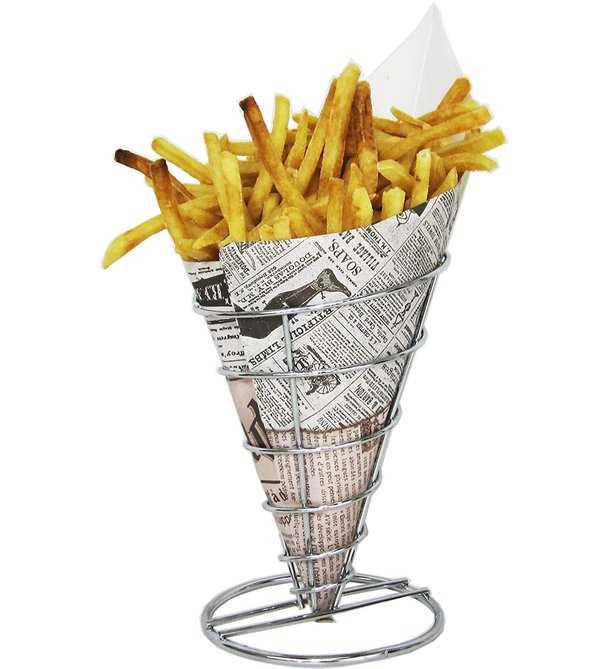
Recycling fish and chip paper is not only important for the environment, but also for the sustainability of the fish and chip industry. By properly recycling the paper used to wrap fish and chips, we can help conserve resources, reduce waste, and minimize the impact on our planet.
Conserving Resources
Recycling fish and chip paper helps conserve the resources that are used in its production. To produce paper, trees are cut down and processed, requiring energy and water. By recycling paper, we can reduce the demand for new paper production and decrease the amount of resources used in the process.
In addition, recycling paper also conserves other resources that are used in the production of fish and chips. For example, by recycling the paper used for packaging, we can reduce the need for virgin material, such as plastic or Styrofoam, which are often used for takeout containers.
Reducing Waste
By recycling fish and chip paper, we can divert waste from landfills and reduce the amount of waste that ends up in our oceans. Fish and chip paper is often contaminated with food residue, making it difficult to recycle through traditional methods. However, advancements in recycling technology have made it possible to separate the food residue from the paper, allowing it to be recycled and turned into new paper products.
Recycling fish and chip paper not only reduces waste, but also helps reduce the production of greenhouse gases that are emitted during the decomposition of organic waste in landfills. By diverting paper from landfills, we can help minimize the release of these gases and mitigate their impact on climate change.
Furthermore, recycling paper reduces the need for incineration, which can release harmful pollutants into the air. By recycling fish and chip paper, we can avoid these negative environmental impacts and promote a cleaner and healthier future.
In conclusion, recycling fish and chip paper is crucial for preserving our environment and ensuring the sustainability of the fish and chip industry. Through proper recycling practices, we can conserve resources, reduce waste, and minimize the negative impacts on our planet. It is important for individuals and businesses alike to participate in the recycling process and help create a more sustainable future for generations to come.
Environmental Benefits of Recycling Fish and Chip Paper
Recycling fish and chip paper comes with a range of environmental benefits. Here are a few reasons why recycling this type of paper is so important:
Reduces Deforestation
When we recycle fish and chip paper, we reduce the demand for new paper products, which in turn helps to minimize deforestation. The production of paper from trees contributes to the clearing of forests, which leads to habitat destruction and loss of biodiversity. By recycling fish and chip paper, we can help protect our precious forests and the wildlife that depend on them.
Conserves Energy
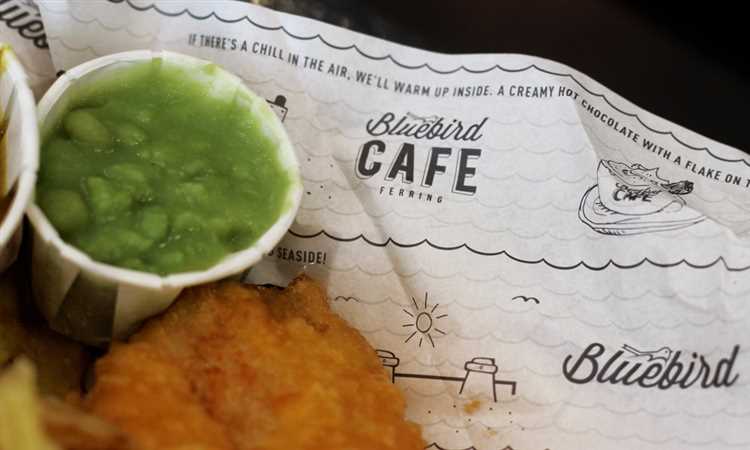
Recycling fish and chip paper requires significantly less energy compared to producing new paper from raw materials. This is because the recycling process involves less steps and resources, such as water and chemicals. By conserving energy, we can reduce carbon emissions and mitigate the impacts of climate change.
Reduces Water Pollution
The production of paper from raw materials can result in water pollution due to the discharge of harmful chemicals and wastewater. By recycling fish and chip paper, we can prevent this pollution and protect our waterways. Recycling also reduces the amount of wastewater generated during the manufacturing process, helping to conserve valuable freshwater resources.
Decreases Landfill Waste
When fish and chip paper is not recycled, it often ends up in landfill sites where it contributes to the growing waste problem. By recycling this type of paper, we can reduce the amount of waste that goes to landfills, ultimately reducing the environmental and health impacts associated with landfills.
In conclusion, recycling fish and chip paper has numerous environmental benefits. It helps to conserve forests, save energy, prevent water pollution, and reduce landfill waste. By making the effort to recycle this type of paper, we can contribute to a more sustainable and environmentally-friendly future.
How to Properly Recycle Fish and Chip Paper
Recycling fish and chip paper is a great way to reduce waste and help the environment. Here are some tips on how to properly recycle this type of paper:
| Step 1: | Remove any excess food or grease from the paper. This can be done by gently scraping the paper with a knife or paper towel. |
| Step 2: | Tear the paper into smaller pieces. This helps with the recycling process and ensures that the paper can be properly processed. |
| Step 3: | Check with your local recycling program to see if they accept fish and chip paper. Some programs may have specific guidelines or requirements for recycling this type of paper. |
| Step 4: | If your local program accepts fish and chip paper, place it in your recycling bin. If not, explore other options for recycling, such as finding a specialized recycling facility or composting the paper. |
| Step 5: | Make sure to follow your local recycling program’s rules and guidelines for recycling paper. This may include sorting the paper from other recyclables or placing it in a separate bin. |
By properly recycling fish and chip paper, you can contribute to a more sustainable and environmentally-friendly future. Together, we can make a difference!
Challenges and Solutions for Recycling Fish and Chip Paper
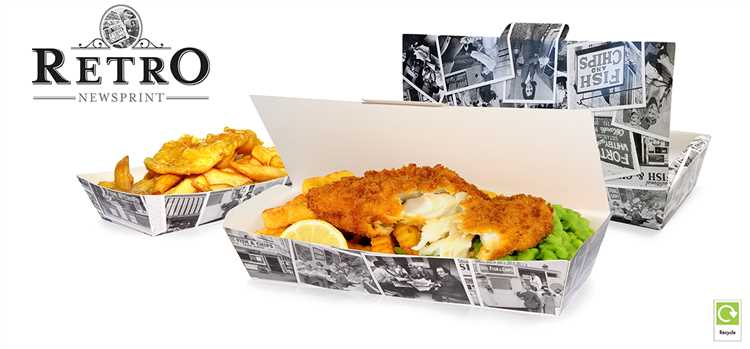
Recycling fish and chip paper may seem straightforward, but there are a number of challenges that need to be addressed in order to ensure that this waste is effectively processed and reused. The following are some of the key challenges and solutions for recycling fish and chip paper:
| Challenges | Solutions |
|---|---|
| The grease and oil from the food can contaminate the paper, making it difficult to recycle. | Using specialized recycling techniques that can separate the grease and oil from the paper, such as heat extraction or solvent treatments. |
| The paper may have food residue or other contaminants, which can affect the quality of recycled paper. | Implementing strict sorting and cleaning processes to remove any contaminants before recycling. |
| The paper fibers may be weakened or degraded due to the frying process, making it less suitable for recycling. | Investing in innovative technologies that can strengthen or regenerate the paper fibers, such as fiber rejuvenation or blending with other stronger fibers. |
| There may be difficulty in sourcing a consistent supply of fish and chip paper for recycling. | Establishing partnerships with fish and chip shops, restaurants, and other food establishments to ensure a regular supply of paper waste for recycling. |
| The cost of recycling fish and chip paper may be higher compared to other types of paper due to the additional processing required. | Exploring cost-effective options, such as government subsidies or incentives, to encourage the recycling of fish and chip paper. |
Addressing these challenges and finding solutions will not only help reduce the environmental impact of fish and chip paper waste but also contribute to the circular economy by creating new opportunities for the paper recycling industry.
Other Uses for Recycled Fish and Chip Paper
Recycled fish and chip paper can be used for a variety of purposes beyond its original use. Here are some examples of how you can repurpose this material:
1. Wrapping Paper
Why not give your gifts a unique touch by using recycled fish and chip paper as wrapping paper? The newspaper-like texture and print can give your presents a vintage look.
2. Arts and Crafts
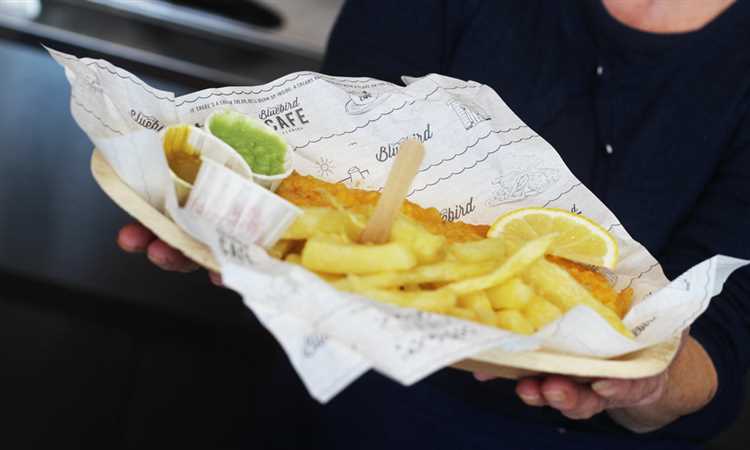
Recycled fish and chip paper can be the perfect material for various arts and crafts projects. Whether you’re creating collages, origami, or paper mache, the paper’s durability and unique texture can add character to your creations.
| Possible Uses | Advantages |
|---|---|
| Composting Material | The paper’s organic nature makes it an ideal addition to any compost pile. It helps retain moisture and adds carbon to the composting process. |
| Protective Layer | Whether you’re gardening or painting, recycled fish and chip paper can act as a protective layer to prevent damage to surfaces. |
| Fire Starter | The paper’s flammable properties make it an excellent fire starter. Just crumple it up, and you’ll have a quick and easy way to start a fire. |
Before repurposing your fish and chip paper, make sure it’s free of any food residue. This will help prevent unwanted odors and potential contamination in your arts and crafts projects or when using it as wrapping paper.
Q&A:
What is fish and chip paper?
Fish and chip paper is the paper used to wrap fish and chips in takeout shops.
Can fish and chip paper be recycled?
Yes, fish and chip paper can be recycled if it meets certain criteria.
What criteria does fish and chip paper need to meet in order to be recycled?
Fish and chip paper needs to be free from any grease or food residue in order to be recycled.
Why is it important to recycle fish and chip paper?
Recycling fish and chip paper helps reduce waste and promotes sustainable practices.
What can fish and chip paper be recycled into?
Fish and chip paper can be recycled into new paper products such as cardboard and newspapers.
Why is fish and chip paper not recyclable?
Fish and chip paper is typically not recyclable because it is coated with a layer of grease or oil, which contaminates the paper fibers and makes them difficult to recycle.